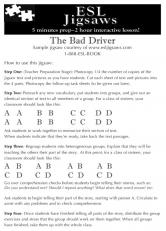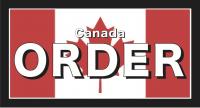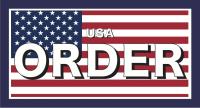ESL Jigsaws
5 Minutes Prep - 2 Hour Interactive Lesson!
Viewing entries tagged with 'ELL'
What it Means to be Canadian
Prime Minister Justin Trudeau has a habit of defining who we are as a country by referring to our highest values. He recently said, "I really do want to highlight that Canada is a country where we look out for our neighbours and we are there for each other in difficult times. And certainly in Fort McMurray, the difficult times they are going through right now is something that we are going to unite around."
Having Fun with New Canada Jigsaws CLB 5-6
Field testing of Callan's New Canada Jigsaws has been completed with over 35 field testers from all across the country. Here are a couple highlights of some of the fun field testers had.
Field Testing Has Begun For New Canada Jigsaws!
Teachers and their classes across Canada have begun testing the material from Callan's New Canada Jigsaws.
Reading on a Thrift Store Business Model
Thrift stores are becoming more popular with middle aged clothes shoppers. Seems if you don't want to wear yoga attire to work, thrift stores are some of the best sources for clothing made from a wider variety of fabrics.
Soft Skills: Small Talk About the Weather
Over the years I've had numerous students say they've been turned down after job interviews because they lacked local experience. If having worked locally were a prerequisite for the job, would their resumés not have precluded them from even getting the interview? More likely the experience referred to is related not to quantifiable hard skills but rather to more intangible soft skills that enable a person to "fit in", such as knowledge of local language and the ability to engage in small talk.
Christmas Reading for Low Beginners
The Christmas story below is geared for literacy and low beginner ELL students. It is adapted from Callan’s Canadian Holidays for Low Beginner ESL, but is suitable for use in America as well. Further low beginner exercises on Christmas, with pictures, are found in that book. An audio CD and cloze exercise are also available. (For free material for mid-beginner or intermediate level, check out my blog post on Christmas from last year, here. Or why not try a jigsaw lesson for Christmas? Check out Callan's Holiday Jigsaws.)
Classroom Word Search Using English Directionality
This activity is made for an absolute beginner ESL or literacy level English language learning class, focusing on classroom verbs such as listen, speak, read, write, sit down, open, turn on, turn off etc., as well as classroom nouns, such as chair, desk, table, board, etc. A word search is a great way to reinforce this new vocabulary, but watch out for the direction words are written in.
Go and Went Grammar Errors
Anyone who has taught grammar in a beginner level ESL or EFL class knows that the speed and accuracy with which students complete grammar worksheets is only very weakly correlated with their ability to use the given grammatical structure later in their own speech.
A Fun Way to Teach Body Parts
Jigsaws aren’t the only cooperative learning activity that I do in my classroom. Here is a fun activity for reviewing body parts. I divide the class into groups of three and give each group a sheet of chart paper and a felt marker. I ask the students to take turns being the artist.
Teaching the Alphabet: Literacy 101
Adult literacy students range from pre-literate to non-literate to semi-literate to those from non-Roman alphabets. I've had some students who did not know how to hold a pencil. I've had others who had no idea when their birthday was because they came from cultures where no one knew dates or years. But the majority of literacy students I've had came from non-Roman alphabets and had some knowledge of the English alphabet. Some even knew the names of all the letters of the alphabet, but had little knowledge of the sounds of any letters. Trouble writing on the line, confusion between upper and lower case and some letters backwards or reversed are all clues that a student may fit in this category of students.


